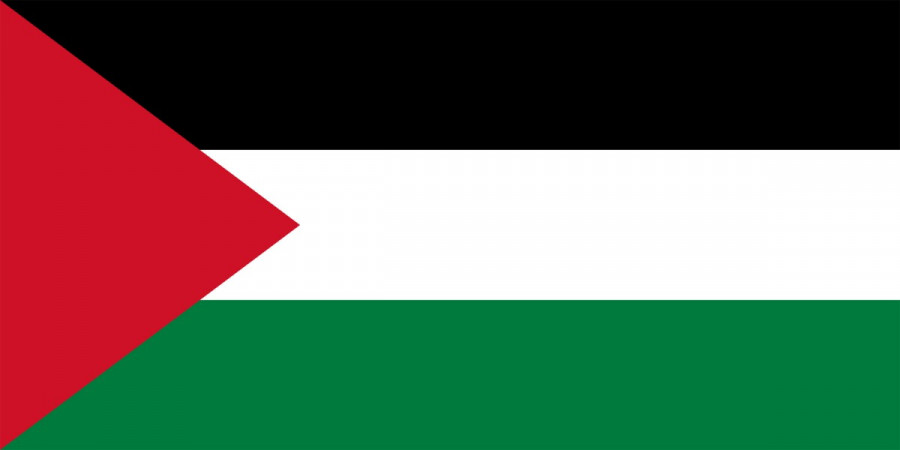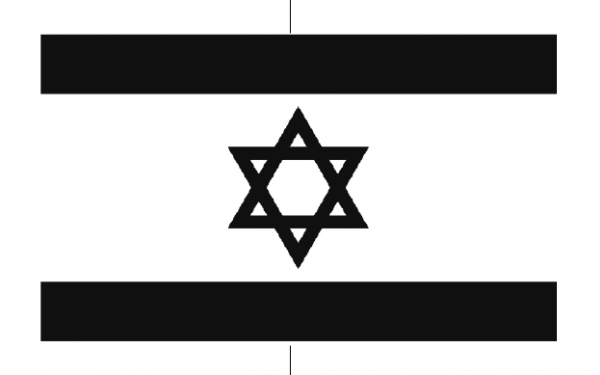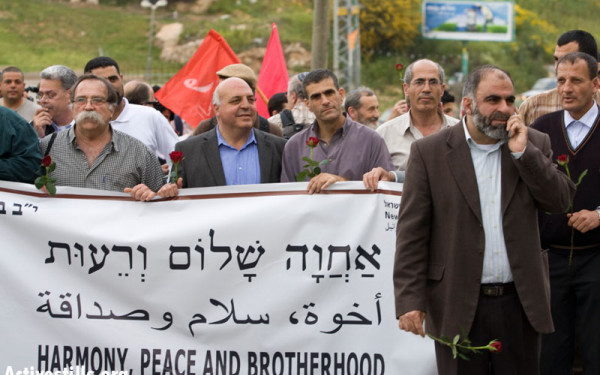Vote YES to BDS
Concordia undergraduates, from Nov. 25 to Nov. 27 you will be asked to vote on an important referendum question which would end our complicity with human rights abuses against Palestinians, while also sending a strong message to Concordia about our commitment to equality.
Undergraduate students will vote on the following question: “Do you approve of the CSU endorsing the Boycott, Divestment and Sanctions (BDS) movement against Israel’s occupation of Palestine until Israel complies with International Law and Universal Principles of Human Rights?”
Before you vote, let’s unpack that question.
This Isn’t the First Time
The BDS movement has its roots in the international boycott of South Africa, which played a key role in reforming that nation’s institutional frameworks to eradicate apartheid. It proved to be an effective form of global non-violent resistance. The South African boycott movement inspired Palestinian civil society to initiate its own global BDS call in 2005 to hold Israel accountable before international law and encourage her to end its apartheid system.
A Growing Movement
The BDS movement against the State of Israel quickly gained traction around the world. Driven by a sense of moral responsibility and solidarity, human rights organizations, unions, churches, journalists including Naomi Klein and academics such as Israeli historian Ilan Pappé and philosopher Slavoj Žižek have endorsed this BDS campaign.
South Africa’s ruling party, the African National Congress, adopted BDS against Israel during its 2012 annual conference, declaring that “the Palestinians are the victims and the oppressed.”
Jewish organizations of conscience inside both Israel and North America actively support BDS because, simply put, many Jews oppose the occupation and the denial of rights to Palestinians. They include Israel-based BOYCOTT!, Canada-based Independent Jewish Voices, and US-based Jewish Voice for Peace, among many others.
Over the past several years student associations across Canada, including the Concordia Graduate Students’ Association, joined the movement in ever increasing numbers.
Why is there such resounding support around the world, in Canada and at Concordia, for the BDS campaign against the state of Israel?
Documented Apartheid and Illegal Occupation
For one, many scholars note the parallels between South African apartheid, where citizens were segregated by race and held to different legal rights systems based upon their race, with the situation in the Occupied Palestinian Territories where Palestinians face systematic segregation and discrimination mandated by the state of Israel.
According to a UN Human Rights Council report by Richard Falk, “It seems incontestable that Israeli measures divide the population of the Occupied Palestinian Territory along racial lines, create separate reserves for Palestinians and expropriate their land.”
Palestinians living in Israel are effectively second-class citizens. Adalah, an NGO in Israel, states that there are “more than 50 Israeli laws that discriminate against Palestinian citizens of Israel in all areas of life, including their rights to political participation, access to land, education, state budget resources, and criminal procedures.” This system based on ethnicity is a system synonymous with apartheid.
This segregation is also physically upheld by Israel’s construction of a wall, which has been ruled as a breach of international law by the International Court of Justice. The ICJ stated, “All States are under an obligation not to recognize the illegal situation resulting from the construction of the wall and not to render aid or assistance in maintaining the situation created by such construction.”
Israel’s occupation and settlement of the Palestinian territories stands in clear violation of the Fourth Geneva Convention and international law, according to the UN Security Council, Resolution 68/82 of the UN General Assembly, the European Union, and the advisory opinion of the ICC rendered on 9 July 2004.
Israel’s occupation steals Palestinian homes, places of worship and farms and grants them to illegal settlers, according to the Israeli Committee against House Demolitions.
It is an occupation that deprives Palestinians of their basic right to water, prioritizing its access to illegal settlers, according to Amnesty International.
It is an occupation that forces Palestinians to take segregated bus lines in the West Bank in order to be kept apart from illegal Israeli settlers, according to Israel’s most prominent newspaper, Haaretz.
And finally, it is an occupation that treats Palestinian children as if they were adults, arbitrarily arresting them at gunpoint and interrogating them without a family member or lawyer present, according to Human Rights Watch.
Responding to the above violations of international law, the BDS movement demands that Israel end its occupation and colonization of Palestinian lands and dismantle the wall; recognize the fundamental rights of Palestinian citizens of Israel to full equality; and allow the right of exiled Palestinian refugees to return as stipulated in UN resolution 194. BDS tactics are directed against the State of Israel and institutions that aid the occupation and oppression of Palestinians.
All members of the international community and civil society have the right and obligation to oppose any nation acting in clear violation of international law and human rights—especially in our case, when both our government and our university are complicit. It is not fair that Israel be exempted from this norm.
Back to Concordia
In our case, Concordia is connected with the Technion-Israel Institute of Technology, which has strong ties to the Israeli military and its occupation and is involved in research and development of technology reinforcing the illegal wall.
By voting “YES” to BDS, Concordia undergraduate students will be able to join their graduate counterparts to strengthen efforts to have a Concordia that we are proud to stand by. Since Palestinians do not have legal channels to voice their grievances and fight against injustice, let us use the channel of Concordia to stand with them to oppose apartheid.
Our message is simple: as critically -thinking students, why should we agree to be complicit when we have the choice?
That choice should be YES to BDS.
Javier I. Hoyos is the chair of the “Yes” to BDS Committee.


_600_832_s.png)




